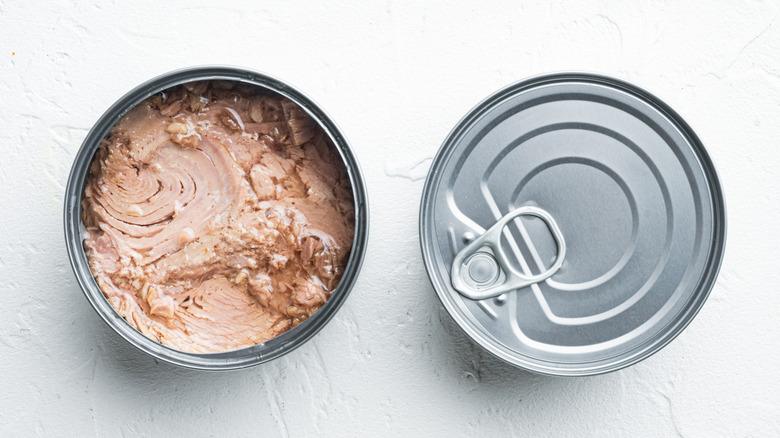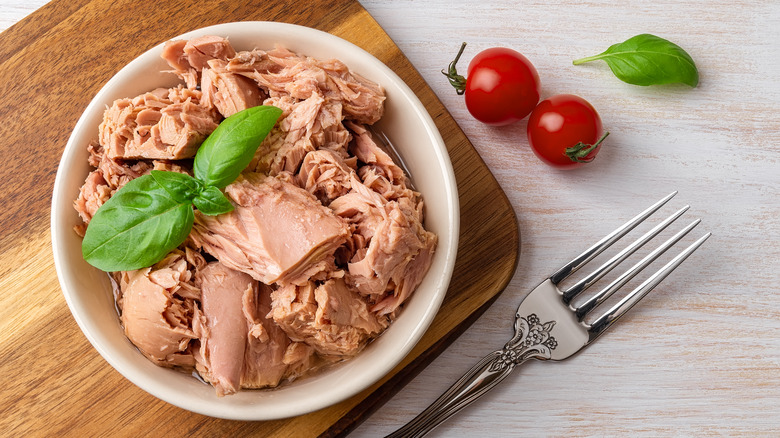Why You Should Always Have Canned Tuna In Your Pantry
Even if you're not a prepper, it's a good idea to have your kitchen pantry well stocked. Not only does it help ensure that you have the ingredients you need to put together a quick meal, but it can save you a trip to the grocery store — the last thing you need when you've had a long day, you're tired, you're hungry, and gas prices are sky high.
There are certain canned foods that every well-stocked pantry should have. Soups for one: not only do they come in different varieties so you never get bored, but they make for one of the easiest meals ever — simply open, empty into a container, and heat before serving. Canned tomatoes are another key item, and the base for so many dishes across different cuisines. Another essential to include in your pantry? Canned tuna. From the classic tuna salad and tuna noodle casserole to elevated tuna melts and tuna croquettes, the humble and budget-friendly can of tuna is incredibly versatile and easy to turn into a delicious meal — try adding some spreadable condiments like Dijon mustard, harissa, or Greek yogurt to spice up your canned tuna. It's no wonder that Americans eat a whopping 1 billion pounds of canned and pouched tuna a year, according to the National Fisheries Institute.
Canned tuna is nutritious and has a long shelf life
In addition to its versatility, canned tuna is also incredibly nutritious. It's low in calories and fat, yet high in protein: a 4-ounce serving of white (or albacore) tuna contains more than 26 grams of protein for only 145 calories and less than 4 grams of fat (via WebMD). Canned tuna is also a good source of omega-3 fatty acids, along with important vitamins and minerals like vitamin D, B-vitamins, magnesium, phosphorous, and selenium.
One concern with canned tuna is that it contains mercury, a neurotoxin. However, depending on the type of canned tuna, you can enjoy several servings a week. According to the US Food and Drug Administration, adults can safely enjoy two to three 4-ounce servings of light tuna, and one 4-ounce serving of albacore tuna, a week without concerns about mercury.
Another benefit to canned tuna is its long shelf life. While the National Fisheries Institute recommends four years for unopened canned tuna and three for pouched tuna, per the USDA, commercially canned tuna is actually safe to consume for up to five years. So grab a few extra cans of tuna the next time you are at the grocery store. They'll be good for a long while, but with all the dishes you can make from them, they might not last as long as you think.

